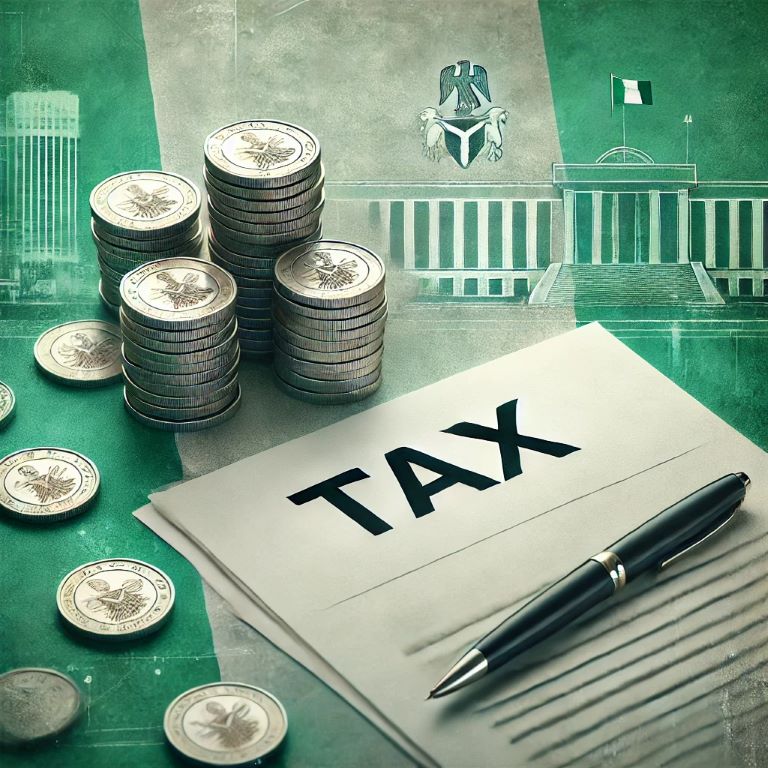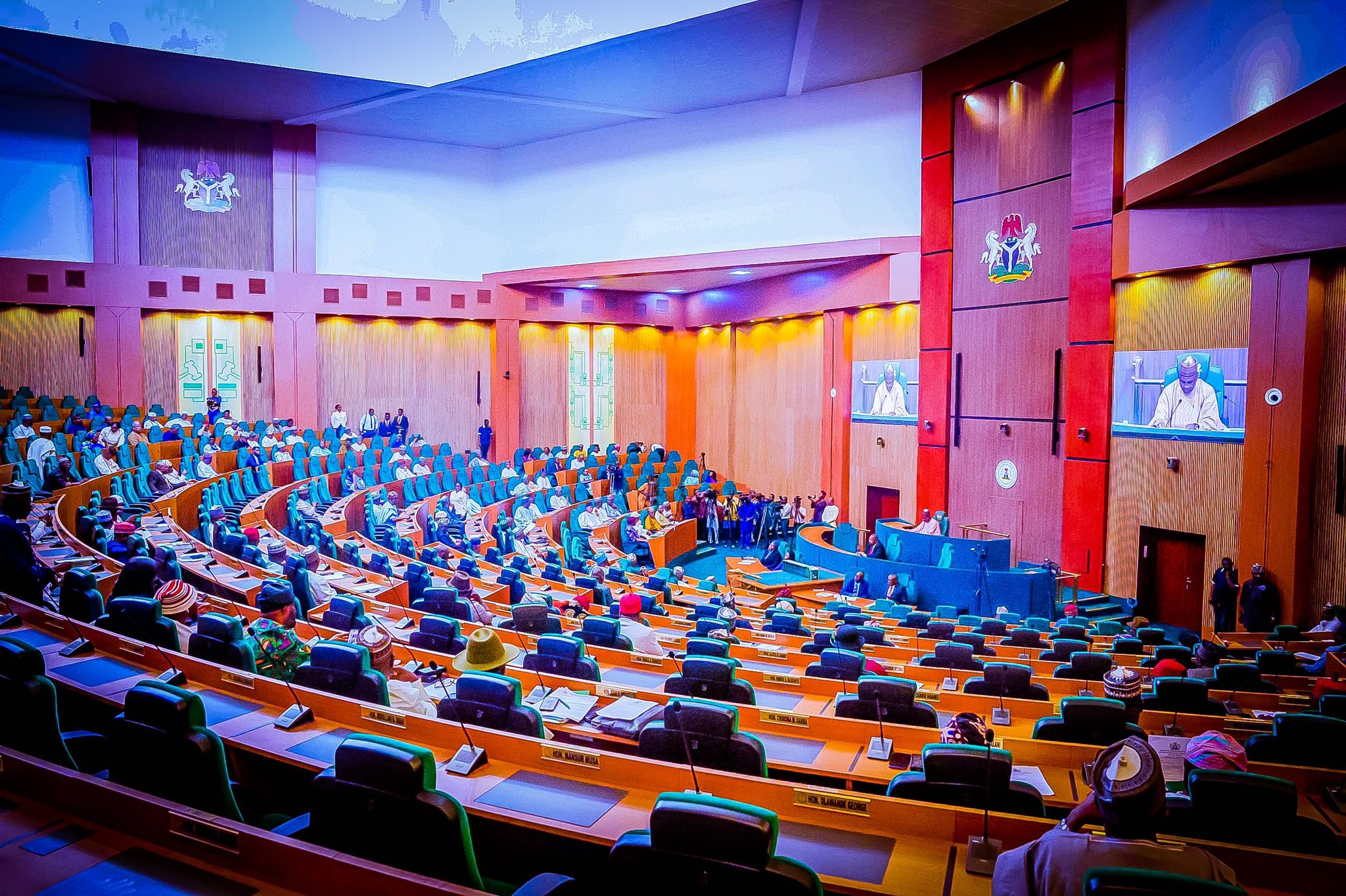Nigeria’s April 2025 inflation data brought some relief to the economy, with headline inflation dropping to 23.71% from 24.23% in March. This slight but significant fall reflects a slowing pace of price increases and a hopeful sign for the months ahead.
The equities market also responded positively, closing the week higher as investors looked forward to better monetary policy conditions. Here’s a breakdown of the latest economic trends both globally and locally.
International Economic Update
Globally, trade tensions resurfaced as U.S. President Donald Trump reintroduced tariffs targeting Chinese and other Asian goods. This move has begun to stir global market unease, especially among emerging markets with high import bills. For Nigeria, the impact is visible in the uptick in imported food inflation, which climbed 1.25% month-on-month in April, compared to 0.48% in March.
Meanwhile, energy prices remain volatile. Nigeria’s new energy index, introduced to monitor the sector’s inflation, rose to 13.50% m/m in April, up from 9.21% the previous month. This trend could reflect both global oil market uncertainties and domestic distribution inefficiencies.
Nigerian Economy This Week
The National Bureau of Statistics (NBS) reported that headline inflation eased to 23.71% in April 2025, down from 24.23% in March. On a month-on-month basis, inflation fell by 2.04 percentage points to 1.86%, indicating a slower rate of increase in prices.
This downward trend is largely attributed to a drop in food prices, improved currency stability, and a rebased CPI basket that better reflects current consumption habits. According to the NBS, “food inflation dropped to 21.26% y/y in April from 40.53% in April 2024”. This drastic drop was primarily due to the rebasing exercise, not a fundamental change in food supply.
On a monthly basis, food inflation edged lower to 2.06% from 2.18%. Prices of items like maize flour, wheat grain, okro, yam flour, soya beans, rice, and brown beans saw notable reductions. However, the cost of imported food continues to climb.
Core inflation, which excludes food and energy, also dropped to 23.39% y/y in April, from 26.84% y/y in April 2024. Monthly core inflation also saw a sharp slowdown to 1.34%, compared to 3.73% in March.
State-level inflation revealed disparities. Enugu (35.98% y/y), Kebbi (35.13%), and Niger (34.85%) had the highest headline inflation. In contrast, Ondo (13.42%), Cross River (17.11%), and Kwara (17.28%) saw the slowest growth. Month-on-month, Sokoto (16.26%), Nasarawa (16.02%), and Niger (14.74%) led the rise, while Oyo (-6.45%), Osun (-4.54%), and Ondo (-3.44%) recorded declines.
In food inflation, Benue (51.76% y/y) topped the list, followed by Ekiti (34.05%) and Kebbi (33.82%). States with the lowest food inflation included Ebonyi (7.19%), Adamawa (9.52%), and Ogun (9.91%). On a monthly basis, Benue (25.59%), Ekiti (16.73%), and Yobe (13.92%) led the increase, while Ebonyi (-14.43%), Kano (-11.37%), and Ogun (-7.06%) saw sharp drops.
Stock Market Update
The Nigerian equities market ended the week in positive territory. Investor sentiment was buoyed by a soft inflation print and ongoing dividend season. The benchmark NGX All-Share Index rose 0.90% week-on-week to close at 109,710.37 points, after reaching an intra-day high of 109,850.83 points.
Market capitalization increased by ₦613.99 billion to ₦68.95 trillion. Year-to-date returns stood at 6.59%. Market breadth was strong at 1.97x, with 61 gainers versus 31 losers.
However, trading activity was subdued. Volume of shares traded fell 1.66% to 2.60 billion units. The total value of trades declined 17.32% to ₦63.66 billion, and deals dropped 10.15% to 77,370.
Sectoral performance was upbeat. The NGX Consumer Goods index gained 4.08%, led by CHAMPION, NNFM, MAYBAKER, and HONYFLOUR. The NGX Insurance index rose 2.47%, followed by NGX Banking (1.19%), NGX Oil and Gas (0.66%), and NGX Industrial and Commodity indices with marginal gains.
Top gainers for the week were BETAGLASS (+46.3%), CHAMPION (+42.10%), CAVERTON (+37.7%), FTNCOCOA (+36.3%), and NNFM (+32.5%). Laggards included MULTIVERSE (-19.5%), UNIONDICON (-11.8%), NAHCO (-9.6%), UPL (-8.9%), and LEGENDINT (-6.7%).
Money Market Update
In the Nigerian money market, the week ending May 16, 2025, witnessed notable developments across treasury bills, bonds, and banking interest rates.
Treasury Bills Market
Yields on Nigerian Treasury Bills (T-bills) have experienced fluctuations in recent auctions. At the auction held on March 19, 2025, the Debt Management Office (DMO) offered a total of ₦800 billion across the standard tenors—91-day, 182-day, and 364-day bills. The stop rates cleared at 18.00% for the 91-day, 18.50% for the 182-day, and 19.94% for the 364-day bills. Investor appetite was overwhelmingly skewed towards the longer-term 364-day bill, which garnered a massive subscription of ₦831.42 billion, reflecting a strategy to lock in higher returns amid expectations of continued tight liquidity and rising borrowing costs.
However, in the subsequent auction on February 19, 2025, yields dropped significantly. The stop rate for the 91-day Treasury Bill fell to 17% from 18%, the 182-day tenor dropped to 18% from 18.5%, and the 364-day tenor recorded a drop from 20% to 18.43%. This decline was influenced by a decrease in Nigeria’s inflation rate, which dropped to 29.90% in January 2025, following the Central Bank of Nigeria’s (CBN) rebasing of the Consumer Price Index (CPI).
Bond Market
In the bond market, yields have shown a downward trend. The average yield on Nigerian Treasury Bills fell by 206 basis points to 19.90% as of March 3, 2025, compared to 21.96% post-auction. This decline is attributed to improved system liquidity and expectations of further moderation in inflation rates.
Banking Interest Rates
The average maximum lending rate in Nigeria’s banking sector increased to 29.79% in January 2025, signifying the high cost of borrowing from financial institutions. This increase is influenced by the CBN’s regulatory requirements, especially the high Cash Reserve Ratio (CRR) at 50%, and the Liquidity Ratio, which impacts the interest rate spread and reduces funds available for lending.
The deposit interest rate in Nigeria decreased to 11.19% in March from 11.54% in February 2025. This decline reflects the adjustments in the monetary policy and the banking sector’s response to prevailing economic conditions.
Trading Economics
Overall, the Nigerian money market is experiencing a dynamic environment, influenced by monetary policy decisions, inflation trends, and investor sentiment. Market participants are advised to stay informed and adapt their strategies accordingly.
Forecast/Conclusion
The slowdown in headline, food, and core inflation signals a possible turning point in Nigeria’s inflation trend. While food remains the biggest driver of disinflation, the fall in core inflation — the first in four months — is equally significant.
Looking ahead, we expect May’s inflation to drop to 22.65%. Key drivers include improved food supply from seasonal harvests, stable exchange rates, lower energy costs, and better logistics.
However, challenges such as poor infrastructure and foreign exchange fluctuations could dampen the pace of disinflation.
For investors, the outlook remains positive. With signs of further policy support and improving macroeconomic indicators, “we recommend a focus on equities with strong fundamentals, resilient earnings, and attractive valuations.”
Rate, Like 👍, Comment, share this article, and Follow us on our social media handles.








